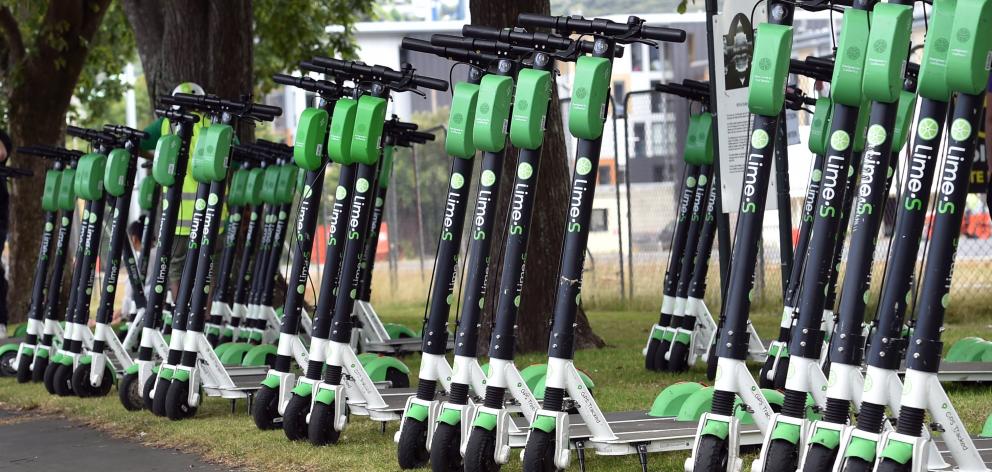
Here was an opportunity for people to enjoy a new and fun method of urban transport. Instead, the scooters have been temporarily withdrawn from operation, including in Dunedin, because of a serious safety issue.
However much Lime endeavours to play down the frequency of brakes locking up at speed, this is a major matter. Riders have been reporting the issue for some weeks. Lime has admitted to the Auckland City Council a total of 155 sudden braking incidents with 30 injuries. Some of these are serious.
Change is always likely to be accompanied by drawbacks and doubts. So it was with Lime scooters. There was footpath safety for pedestrians and the danger of head injuries to riders.
Perhaps, though, a way forward could be found.
When cars and motorbikes themselves first cranked up, there were all sorts of problems. Scooters, Lime's or another company's, seemed at the vanguard of the sharing transport evolution. Urban transport will change, and scooters are part of that.
But what makes the Lime scooter introduction so disappointing is the fact the scooters were not up to the job.
Lime failed to act quickly enough as the braking lock ups occurred. It took the Auckland City Council to apply the pressure. Lime knew about similar problems in Switzerland and pulled them from Zurich and Basel on January 14. There were multiple reports of the scooters stopping abruptly and throwing their riders.
Why, then, did Lime fail to act here also? What faith can anyone have in a company which would seem to have knowingly allowed this fault and this danger to persist in New Zealand? Claims for scooter accidents - accepting the vast majority were for injuries from other causes - are already well past $500,000.
There is also a feeling that New Zealand has been treated as second-rate because a new and considerably safer Lime scooter was launched in October last year. It has bigger wheels that roll over kerbs and potholes more easily and improved braking.
The Dunedin City Council, in its desire to be supportive and progressive, has been somewhat naive. A small charge per scooter for footpath space would have been reasonable when other merchants face such costs, and other centres have been able to levy charges and licence scooters when Dunedin said that was not possible.
There remains the vexed question of helmets. Their mandatory use would curtail casual use, but helmets are compulsory on bicycles and riders and scooter companies would have to adapt.
Lime's weekend email campaign to Auckland and Dunedin city councillors is, as Dunedin Mayor Dave Cull said, irritating and counterproductive. It smacks, too, of arrogance and lack of awareness, especially when the Dunedin City Council has been so supportive.
Lime has also exaggerated the environmental benefits of the scooters. Most of the Dunedin rides are not replacing car trips, the talk of ``last mile'' benefits in the city is misleading and the process of collecting the scooters each night is hardly that environmentally friendly.
We were, with some caveats, supportive of this new mode of getting around Dunedin, or at least flat parts of the city. Its implementation, however, has been a letdown. This setback is not just for Lime also for urban transport innovation in Dunedin.
Comments
I couldn't agree more, Lime's whole approach to the rollout has been lamentable and counterproductive in getting a safe and reliable scooter service introduced. To roll out a fleet with known safety problems and then claim 'safety of our users is our first priority' is corporate malfeasance of the highest order. Lime should never be allowed to operate here again.
ban the lot of them//////// before many deaths












